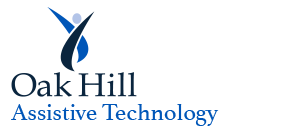We support individuals of all ages with congenital or acquired communication differences, including but not limited to:
Receptive Language Disorders (difficulty understanding communication)
Expressive Language Disorders (limited to no use of verbal speech, reduced vocabulary repertoire, reduced use of language concepts)
Pragmatic Disorders (challenges with social interactions)
Articulation/Phonological Disorders (compromised speech intelligibility, or extent to which he/she is understood by others)
NEAT’s AAC services comprehensively support individuals and teams throughout the consideration, exploration, and implementation processes. Services are completely individualized and are led by a licensed speech-language pathologist. Sessions are conducted in-person, virtually, or through a hybrid delivery approach.
An AAC consultation is a semi-formal meeting between an AAC specialist, educators, families, and/or individuals with disabilities and results in a set of suggested tools and/or strategies.
Benefits:
Among other case-specific topics, the following concerns can be addressed during a consultation:
- Can the client benefit from AAC?
- Which features should a client’s AAC device contain?
- Is the client’s existing AAC device appropriate?
- Which alternative access method has the potential for providing a client with physical access to AAC?
If the team would like to request a brief, written summary of the consultation findings, an additional fee will be included. This report cannot be used to request insurance funding of a dedicated AAC device.
During AAC Coaching sessions, the AAC Specialist follows current evidence-based practices to guide an individual’s support team towards effectively incorporating the use of an AAC device within daily environments.
Benefits:
- Provides support to expand an individual’s use of an AAC device currently in his/her possession.
- Gives strategies to guide an individual in using AAC to interact for a broad range of communicative functions (i.e. commenting, describing, asking questions, etc.)
- Supports AAC implementation within the realm of academics, social interactions, activities of daily living, home routines, vocational tasks, and more.
A structured fusion of consultation and coaching/training services, an AAC Kickstart provides an individual and his/her support team with direct guidance during the beginning stages of AAC consideration and/or implementation.
Typically, the AAC Kickstart service includes 2 hours of consultation, a written summary of suggested tools, and 2 hours of follow-up coaching/training.
Benefits:
- Provides follow-up support after consultative suggestions are made
- Guides the group towards a meaningful starting point for implementation
- Builds team capacity to continue supporting the individual once the service ends
An AAC evaluation is a formal, multi-step process that results in a set of technology recommendations and/or strategies that are thought to meet the unique needs of the individual.
Benefits:
- Begins with a review of records, individual history, learning modalities, personal preferences, and a pattern of strengths and concerns.
- Utilizes a team approach to identify AAC needs.
- Includes environmental observations and trials with various technology supports.
- Results in a report that summarizes the evaluation process, describes detailed recommendations, and provides research-based strategies/resources to guide implementation.
- Upon request and as applicable, involves support to obtain the recommended device through insurance funding.
